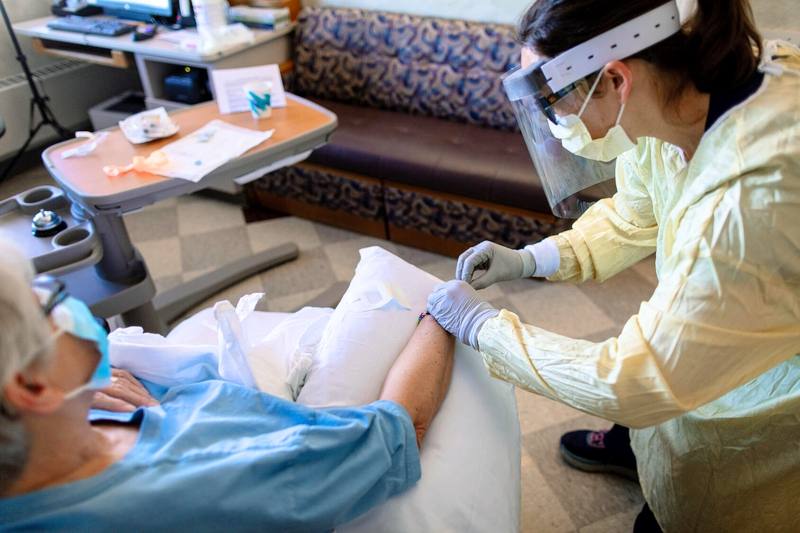-
Mayo Clinic research shows bebtelovimab to be a reliable option for treating COVID-19 in era of BA.2, other subvariants

ROCHESTER, Minn. — Mayo Clinic researchers say the monoclonal antibody bebtelovimab, already authorized by the Food and Drug Administration for emergency use on the omicron variant of COVID-19, is a reliable option to treat BA.2 and other COVID-19 subvariants. The findings of their multisite, retrospective study involving 3,607 high-risk patients appear in the Journal of Infectious Diseases.
"This study gives us confidence that bebtelovimab is reliable for the treatment of high-risk patients during this omicron epoch characterized by increasingly new variants, and gives us another tool in the effort against COVID-19," says Raymund Razonable, M.D., a Mayo Clinic infectious diseases specialist and researcher, and the study's lead author.
Researchers compared outcomes of 2,833 patients infused with bebtelovimab within seven days of their first symptoms to a group of 774 patients prescribed oral nirmatrelvir-ritonavir within five days of symptoms. Because bebtelovimab was authorized for emergency use based on limited clinical data, it was designated by guidelines as an alternative therapy for high-risk patients who could not take nirmatrelvir-ritonavir or IV remdesivir.
Findings of the study showed that only 1.4% of the patients receiving bebtelovimab progressed to serious disease within 30 days. Researchers say that this is comparable to other outcomes with nirmatrelvir-ritonavir at 1.2% and the other previously authorized monoclonal antibody treatments used before the rise of BA.2. Admission to the ICU was 0.4% with bebtelovimab and 0.2% with nirmatrelvir-ritonavir.
High-risk patients included those with a wide range of conditions, but in this population, the most common were hypertension, diabetes mellitus and some form of an immunosuppressed condition. The study group was predominantly white, with a median age of 66 years.
The researchers say this is the first real-world study comparing the effectiveness of these two treatment options in large numbers of patients with COVID-19 during the BA.2 surge. This is the largest cohort of patients treated with bebtelovimab. The results support the use of bebtelovimab as a valuable option for high-risk patients who can't be treated with oral nirmatrelvir-ritonavir. The authors continue to assess its effectiveness as new variants emerge.
The study was funded by Mayo Clinic. The study's senior author is John O'Horo, M.D., a Mayo Clinic infectious diseases specialist. The co-authors are Sidna Tulledge-Scheitel, M.D.; Sara N. Hanson, D.O.; Richard Arndt, Pharm.D.; Leigh Speicher, M.D.; Teresa Seville, M.D.; Jennifer Larsen; and Ravindra Ganesh, M.D., all of Mayo Clinic.
###
About Mayo Clinic
Mayo Clinic is a nonprofit organization committed to innovation in clinical practice, education and research, and providing compassion, expertise and answers to everyone who needs healing. Visit the Mayo Clinic News Network for additional Mayo Clinic news.
Media contact:
- Bob Nellis, Mayo Clinic Communications, newsbureau@mayo.edu







